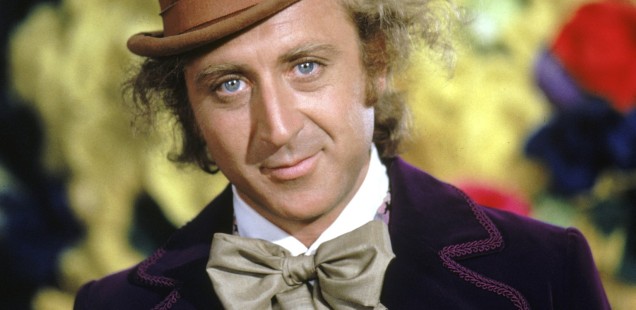
Willy Wonka and the Chocolate Factory
I somehow went through childhood without watching this film in its entirety. My brother got it on tape when I was a senior in high school. Like any three-year-old’s preferred entertainment, it stayed on permanent repeat for a while, so it wasn’t long before I finally saw Gene Wilder in all his wacky glory. At first, the movie seemed like an average family film – entertaining enough but nothing truly special.
A few more viewings later, this classic oddity became a favorite. It still is to this day. Chock full of subtleties, snark, and psychedelia, Willy Wonka and the Chocolate Factory is timeless in an endearingly dated way. Though best known as a children’s movie, it appeals to a broader audience.
The movie is rich with humor that works on different levels and may take multiple viewings to catch. Some stands out, such as the Monty Python-esque incompetence of schoolteacher Mr. Turkentine. Other asides fly under the radar, adding amusement without detracting from the flow of the scenes. A reporter stands in front of a wall-mounted trophy, thus appearing to have antlers. An exasperated programmer tells his reluctant golden ticket-finding computer exactly what it can do with a lifetime supply of chocolate. Wonka himself is a library of strange, poetic, and oftentimes literary quotes. The leadup narrative itself plays out as a satire of media frenzy, with deadpan portrayals of the absurd excesses to which people will go for the goods.
Myriad musical numbers add to the film’s magic. “Pure Imagination” and “The Candy Man” have proven their lasting appeal, as have the succinct and catchy Oompa Loompa tunes. Some may criticize the little people’s ditties for being a brief summary of the multi-page Greek choruses in Roald Dahl’s book. I feel that they fit far better into the context of a movie narrative, getting the point across without overstaying their welcome. Variations in arrangement and tempo keep the song fresh for each kid who earns it.
Beneath the amusement is a solid script. We’re well aware that Charlie will find a golden ticket and win the grand prize at the end of the rainbow. That’s all fine and dandy. Instead of shrugging this off as a foregone conclusion, the film makes us care about how it will happen. It presents Charlie as a human being who earns his reward, recovering from a misstep along the way, rather than a goody two shoes entrusted with an entire factory simply for not messing up. Gene Wilder’s Willy Wonka is truly unique brilliance – an eccentric master of ceremonies, a reclusive genius with a mixture of heart and sadism that each viewer is left to sort out for themselves. I believe that his words in the final scenes were sincere – every last one of them.